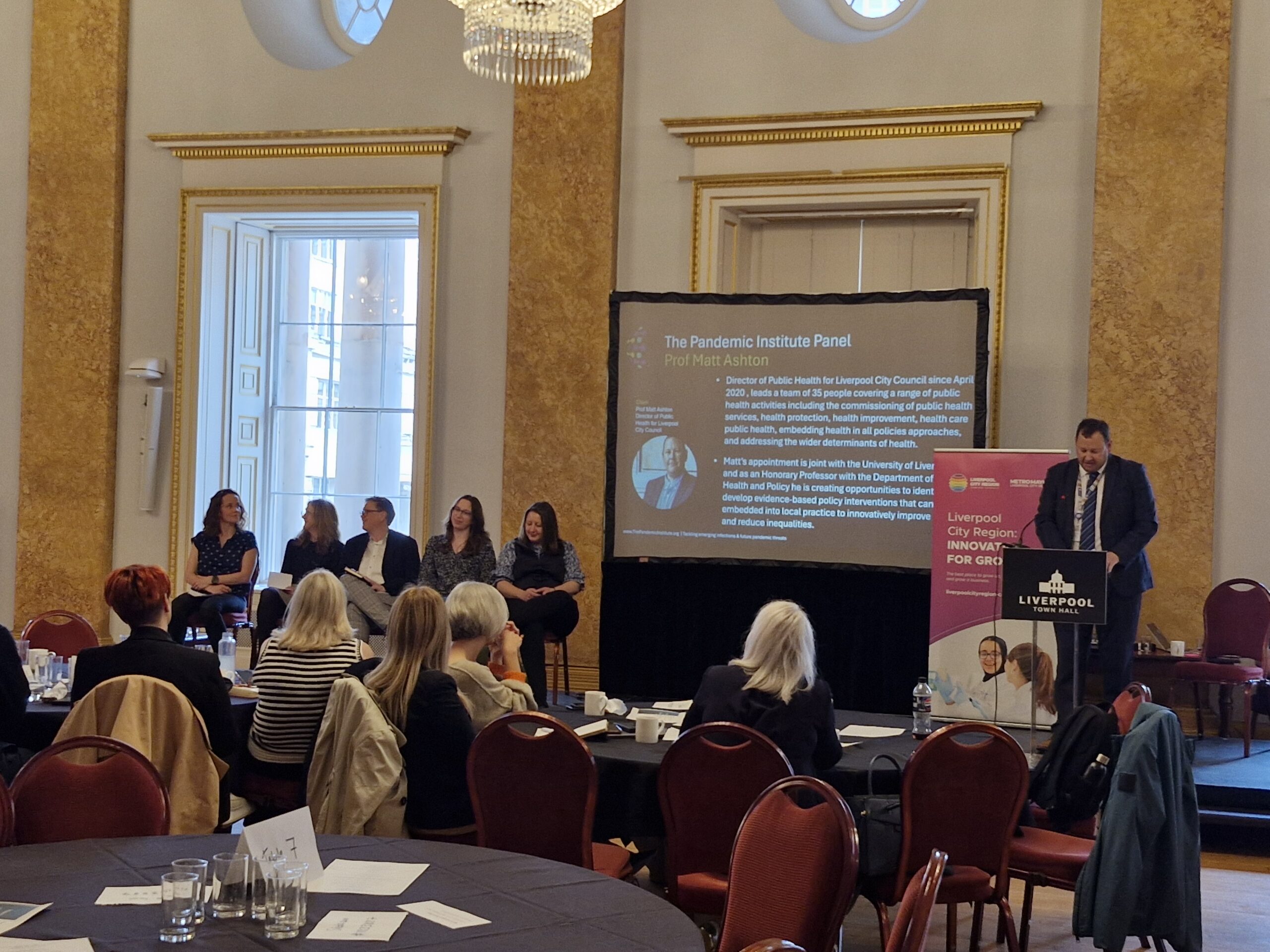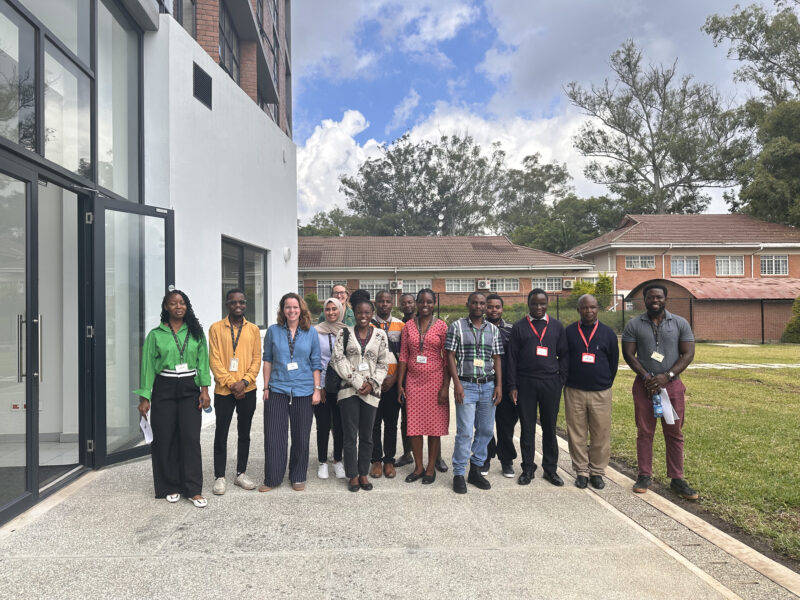The Pandemic Institute Showcases Data-Driven Innovation at Senior Civil Service Event in Liverpool
June 9, 2025

June 9, 2025

With emerging and re-emerging infections increasing globally, strong diagnostic capacity is a cornerstone of pandemic preparedness. Through rapid response funding from The Pandemic Institute, a new partnership between the Malawi Liverpool Wellcome Trust (MLW) and the Public Health Institute of Malawi (PHIM) is empowering rapid detection and response to emerging infections across Malawi. Malawi faces…

BBC reporters recently visited Liverpool researchers to discuss their ongoing work on emerging infections after a rare, imported case of West Nile virus was diagnosed in a UK resident. The case has highlighted the growing importance of research on mosquito transmitted infections and the need to strengthen national preparedness for diseases linked to a warming…